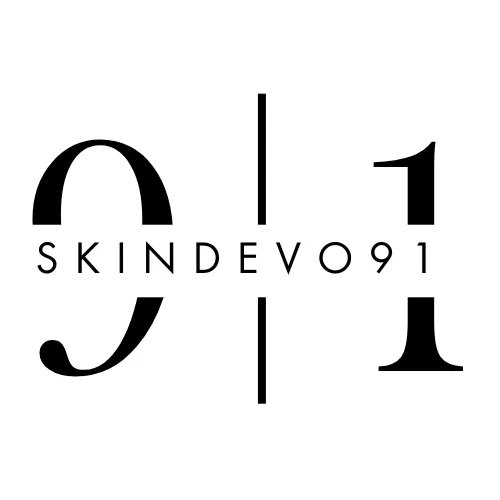
Oral Sunblock Philippines: Is It Better Than Sunscreen? | SkinDevo91
In a country where the sun doesn’t take a day off, protecting your skin isn’t a luxury—it’s a necessity. From weekend getaways to quick commutes under the blazing heat, Filipinos face sun exposure daily. Sunscreen has long been the hero of skin protection. But a new player is gaining serious traction: oral sunblock. So the question arises—what’s better for our tropical climate: oral sunblock or traditional sunscreen?
Let’s break down the science, the practical benefits, and what’s really worth including in your skincare routine—especially here in the Philippines.
The Filipino Sun Exposure Reality
The Philippines sits just above the equator, meaning it experiences high UV radiation all year round. While this is great for beach trips, it also increases the risk of:
Premature aging (wrinkles, sunspots)
Hyperpigmentation (melasma, uneven tone)
Sunburns
Long-term skin damage and even skin cancer
According to the Philippine Dermatological Society, consistent UV protection is critical in a tropical country like ours.
Traditionally, the go-to solution has been topical sunscreen—creams, gels, or sprays applied to the skin. But as daily routines get busier and more people seek low-maintenance beauty solutions, oral sunblock has entered the spotlight.
Topical Sunscreen: The Classic Protector
Topical sunscreen has one job: block or absorb UV rays before they penetrate your skin. There are two major types:
Physical (Mineral) Sunscreens: Use ingredients like zinc oxide or titanium dioxide to reflect UV rays
Chemical Sunscreens: Use ingredients that absorb UV rays and convert them into heat
✅ Pros:
Instant protection (if applied properly)
Widely available in stores
Can offer both UVA and UVB protection (broad-spectrum)
❌ Cons:
Needs to be reapplied every 2 hours (especially if sweating or swimming)
Can feel greasy or sticky (especially under makeup)
May cause breakouts for sensitive skin
Easily forgotten in busy routines
For Filipinos who deal with humidity, sweat, and pollution daily, the experience of wearing sunscreen can often feel uncomfortable—leading many to skip it altogether.
Oral Sunblock: The New-Gen Supplement
Oral sunblock is a dietary supplement that works from within. It doesn’t replace sunscreen but rather enhances the body’s ability to defend itself against UV damage.
One popular formulation in the Philippines is Dfyage oral sunblock, which combines antioxidants like Polypodium leucotomos, Glutathione, and Vitamin C. These ingredients are clinically studied for their photoprotective properties.
✅ Pros:
Hands-free protection—no reapplication needed
Works even on areas sunscreen can’t reach (like scalp or eyes)
Helps improve skin tone, reduce inflammation, and fight pigmentation
Perfect for people with sensitive skin or makeup-heavy routines
❌ Cons:
Requires consistency (daily intake)
Works best when combined with topical SPF for full coverage
Not all formulations are created equal—look for FDA-registered products
Oral sunblock isn't about replacing your sunscreen—it’s about leveling up your sun protection game.
How Do Oral Sunblocks Work?
Oral sunblocks use systemic antioxidants and skin-supporting nutrients that fight oxidative stress caused by UV rays. Here’s what key ingredients do:
Polypodium Leucotomos: A fern extract shown to reduce UVB-induced damage and increase skin’s resistance to sunburn. Studies show it may also help protect Langerhans cells that regulate skin immunity.
Glutathione: Popular in the Philippines for skin brightening, it also neutralizes free radicals
Vitamin C: Boosts overall skin immunity and repairs oxidative damage
By flooding your system with these defenders, oral sunblock works like an internal armor—protecting you from the inside out.
So, Oral Sunblock or Sunscreen?
The answer isn’t either/or—it’s both. But if we had to compare them for daily life in the Philippine climate, here’s a breakdown:

For Filipinos dealing with humidity, city pollution, and sun all day long, oral sunblock offers an incredibly practical upgrade—especially when paired with a reliable SPF product.
Why Oral Sunblock Makes Sense for Filipinos
Low-maintenance routines: Busy students and professionals can’t always reapply SPF midday
Makeup compatibility: No more worrying about ruining your base
Sensitive skin: No harsh chemicals, no clogged pores
Travel-friendly: Great for beach trips, commutes, or long days outdoors
Plus, formulations like Dfyage are made with Filipinos in mind—FDA-registered, formulated for humid climates, and designed to work on all skin tones.
Frequently Asked Questions
Can oral sunblock replace sunscreen?
No. Oral sunblock should be used alongside topical SPF for maximum protection. It enhances your skin’s natural defenses, but doesn’t create a physical UV barrier.
Is oral sunblock safe for daily use?
Yes! Products like Dfyage are FDA-registered and formulated for long-term use with ingredients well-tolerated by most skin types.
How long before I see results?
Most users report visible skin improvements—brighter tone, fewer dark spots, reduced redness—within 2 to 4 weeks of consistent use.
Can men use oral sunblock too?
Absolutely. Sun protection isn’t gendered. Dfyage and similar oral supplements work for anyone seeking inside-out skin defense.
What if I already use sunscreen daily?
You’re ahead of the game! Add oral sunblock for extra protection, especially on days when you sweat, wear makeup, or forget to reapply.
Internal + External = Best Results
If you're serious about sun protection, here's the winning combo:
Take a daily oral sunblock supplement like Dfyage
Apply SPF 30+ on exposed areas when outdoors for extended periods
Add a barrier-repairing serum like C.A.T.E Glow Serum to boost defense and skin radiance
When paired, you get inside-out protection—something traditional sunscreen alone simply can’t offer.
Final Thoughts: What’s Right for You?
If you:
Hate the feel of sticky SPF
Want a simplified routine
Suffer from melasma, dark spots, or skin sensitivity
Spend a lot of time in the sun (commuting, driving, etc.)
Then oral sunblock is an excellent choice to add to your routine—not replace it.
In a climate as sun-intense as the Philippines, doubling up your protection is the smartest move you can make. And with options like Dfyage now available locally, there’s no excuse to skip sun safety.
Want to Try It?
Explore Dfyage Oral Sunblock Here
Protect your skin. Simplify your routine. Glow with confidence.

